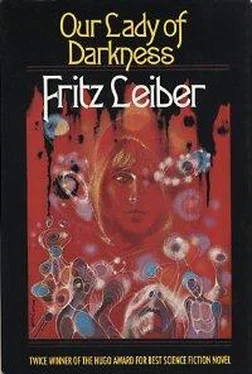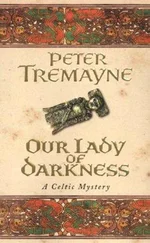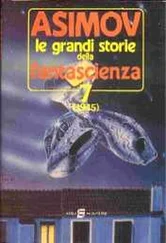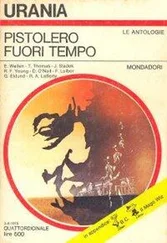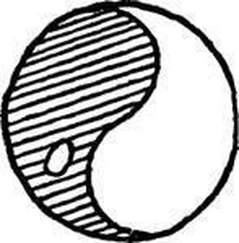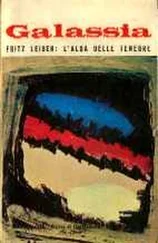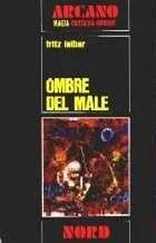He shook the ledger at me, cackling, “Perhaps you should sneak in some night on those quiet little feet of yours and steal it! Yes, why not do that? It would merely mean your finish, paramentally speaking! That wouldn’t hurt. Or would it?”
Yes, by God, it is time I
Franz riffled through the next few pages, all blank, and then gazed over them at the window, which from the bed showed only the equally blank wall of the nearer of the two high rises. It occurred to him what an eerie fantasia of buildings all this was: de Castries’s ominous theories about them, Smith seeing San Francisco as a… yes, mega-necropolis, Lovecraft’s horror of the swarming towers of New York, the downtown skyscrapers seen from the roof here, the sea of roofs he’d scanned from Corona Heights, and this beaten old building itself, with its dark halls and yawning lobby, strange shafts and closets, black windows and hiding holes.
Franz made himself more coffee—it had been full daylight now for some time—and lugged back to bed with him an armful of books from the shelves by his desk. To make room for them, more of the colorful recreational reading had to go on the floor. He joked with his Scholar’s Mistress, “You’re growing darker and more intellectual, my dear, but not a day older and as slim as ever. How do you manage it?”
The new books were a fair sampling of what he thought of as his reference library of the really eerie. Mostly not the new occult stuff, which tended to be the work of charlatans and hacks out for the buck, or naïve self-deceivers innocent even of scholarship—flotsam and froth on the rising tide of witchcraft (which Franz was also skeptical about)—but books which approached the weird obliquely yet from far firmer footings. He leafed about in them swiftly, intently, quite delightedly, as he sipped his steaming coffee. There was Prof. D. M. Nostig’s The Subliminal Occult , that curious, intensely skeptical book which rigorously disposes of all claims of the learned parapsychologists and still finds a residue of the inexplicable; Montague’s witty and profound monograph White Tape , with its thesis that civilization is being asphyxiated, mummy-wrapped by its own records, bureaucratic and otherwise, and by its infinitely recessive self-observations; precious, dingy copies of those two extremely rare, slim books thought spurious by many critics— Ames et Fantômes de Douleur by the Marquis de Sade and Knochenmädchen in Peize mit Peitsche by Sacher-Masoch; Oscar Wilde’s De Profundis and Suspiria de Profundis (with its Three Ladies of Sorrow) by Thomas De Quincey, that old opium-eater and metaphysician, both commonplace books but strangely linked by more than their titles; The Mauritzius Case by Jacob Wasserman; Journey to the End of the Night by Céline; several copies of Bonewits’s periodical Gnostica ; The Spider Glyph in Time by Mauricio Santos-Lobos; and the monumental Sex, Death and Supernatural Dread by Ms. Frances D. Lettland, Ph.D.
For a long space his morning mind darted about happily in the eerie wonder-world evoked and buttressed by these books and de Castries’s and the journal and by clear-cut memories of yesterday’s rather strange experiences. Truly, modern cities were the world’s supreme mysteries, and skyscrapers their secular cathedrals.
Scanning the “Ladies of Sorrow” prose poem in Suspiria , he wondered, not for the first time, whether those creations of De Quincey had anything to do with Christianity. True, Mater Lachrymarum , Our Lady of Tears, the eldest sister, did remind one of Mater Dolorosa , a name of the Virgin; and the second sister too, Mater Suspiriorum , Our Lady of Sighs—and even the terrible and youngest sister, Mater Tenebrarum , Our Lady of Darkness. (De Quincey had intended to write a whole book about her, The Kingdom of Darkness , but apparently never had— that would have been something, now!) But no, their antecedents were in the classical world (they paralleled the three Fates and the three Furies) and in the labyrinths of the English laudanum-drinker’s drug-widened awareness.
Meanwhile his intentions were firming as to how he’d spend this day, which promised to be a beauty, too. First, start pinning down that elusive 607 Rhodes, beginning by getting the history of this anonymous building, 811 Geary. It would make an excellent test case—and Cal, as well as Gun, had wanted to know. Next, go to Corona Heights again to check out whether he’d really seen his own window from there. Sometime in the afternoon visit Jaime Donaldus Byers. (Call him first.) Tonight, of course, Cal’s concert.
He blinked and looked around. Despite the open window, the room was full of smoke. With a sorry laugh he carefully stubbed out his cigarette on the edge of the heaped ashtray.
The phone rang. It was Cal, inviting him down to late breakfast. He showered and shaved and dressed and went.
In the doorway Cal looked so sweet and young in a green dress, her hair in a long pony tail, that he wanted to grab and kiss her. But she also still had on her rapt, meditative look—“Keep intact for Bach.”
She said, “Hello, dear. I actually slept those twelve hours I threatened to in my pride. God is merciful. Do you mind eggs again? It’s really brunchtime. Pour yourself coffee.”
“Any more practice today?” he asked, glancing toward the electronic keyboard.
“Yes, but not with that. This afternoon I’ll have three or four hours with the concert harpsichord. And I’ll be tuning it.”
He drank creamed coffee and watched the poetry of motion as she dreamily broke eggs, an unconscious ballet of white ovoids and slender key-flattened fingertips. He found himself comparing her to Daisy, and, to his amusement, to his Scholar’s Mistress. Cal and the latter were both slender, somewhat intellectual, rather silent types, touched with the White Goddess definitely, dreamy but disciplined. Daisy had been touched with the White Goddess too, a poet, and also disciplined, keeping herself intact… for brain cancer. He veered off from that.
But White was certainly Cal’s adjective; all right, no Lady of Darkness, but a Lady of Light and in eternal opposition to the other, yang to its yin, Ormadz to its Ahriman—yes, by Robert Ingersoll!
And she really did look such a schoolgirl, her face a mask of gay innocence and good behavior. But then he remembered her as she had launched into the first piece of a concert. He’d been sitting up close and a little to one side so that he had seen her full profile. As if by some swift magic, she had become someone he’d never seen before and wasn’t sure for a moment he wanted to. Her chin had tucked down into her neck, her nostril had flared, her eye had become all-seeing and merciless, her lips had pressed together and turned down at the corners quite nastily, like a savage schoolmistress, and it had been as if she had been saying, “Now hear me, all your strings and Mister Chopin. You behave perfectly now, or else!” It had been the look of the young professional.
“Eat them while they’re hot,” Cal murmured, slipping his plate in front of him. “Here’s the toast. Buttered, somehow.”
After a while she asked, “How did you sleep?”
He told her about the stars.
She said, “I’m glad you worship.”
“Yes, that’s true in a way,” he had to admit. “Saint Copernicus, at any rate, and Isaac Newton.”
“My father used to swear by them, too,” she told him. “Even, I remember once, by Einstein. I started to do it myself too, but Mother gently discouraged me. She thought it tomboyish.”
Читать дальше
